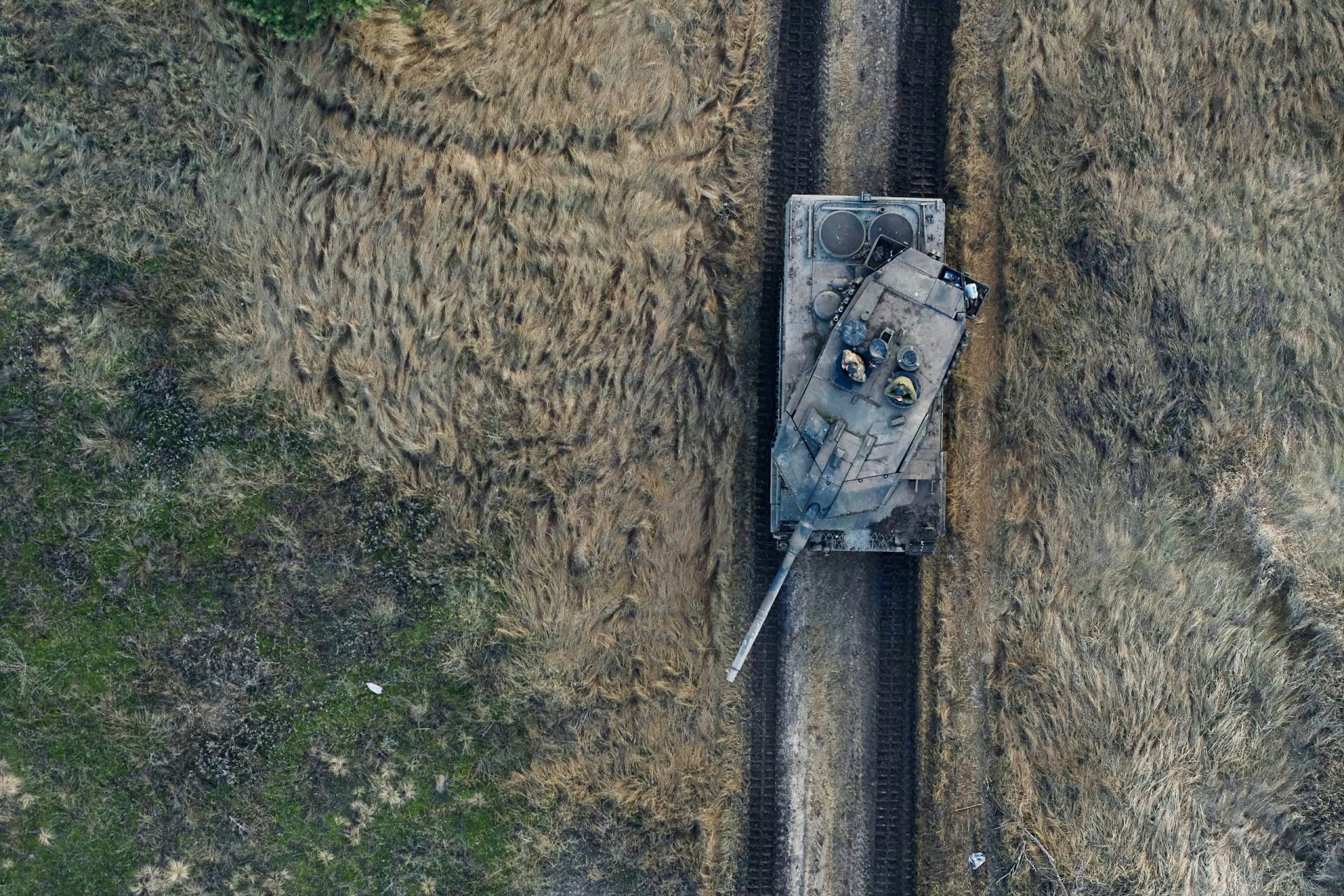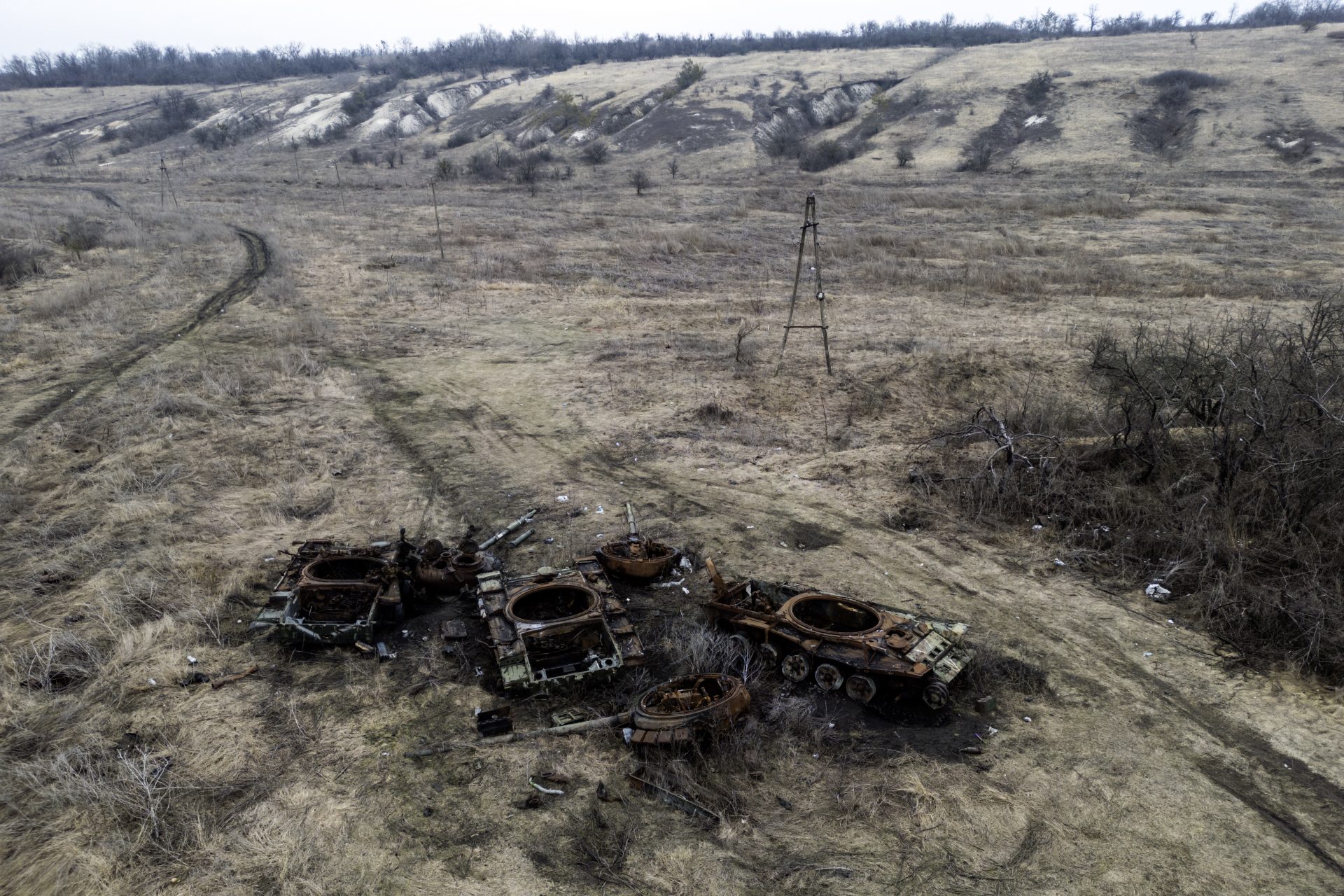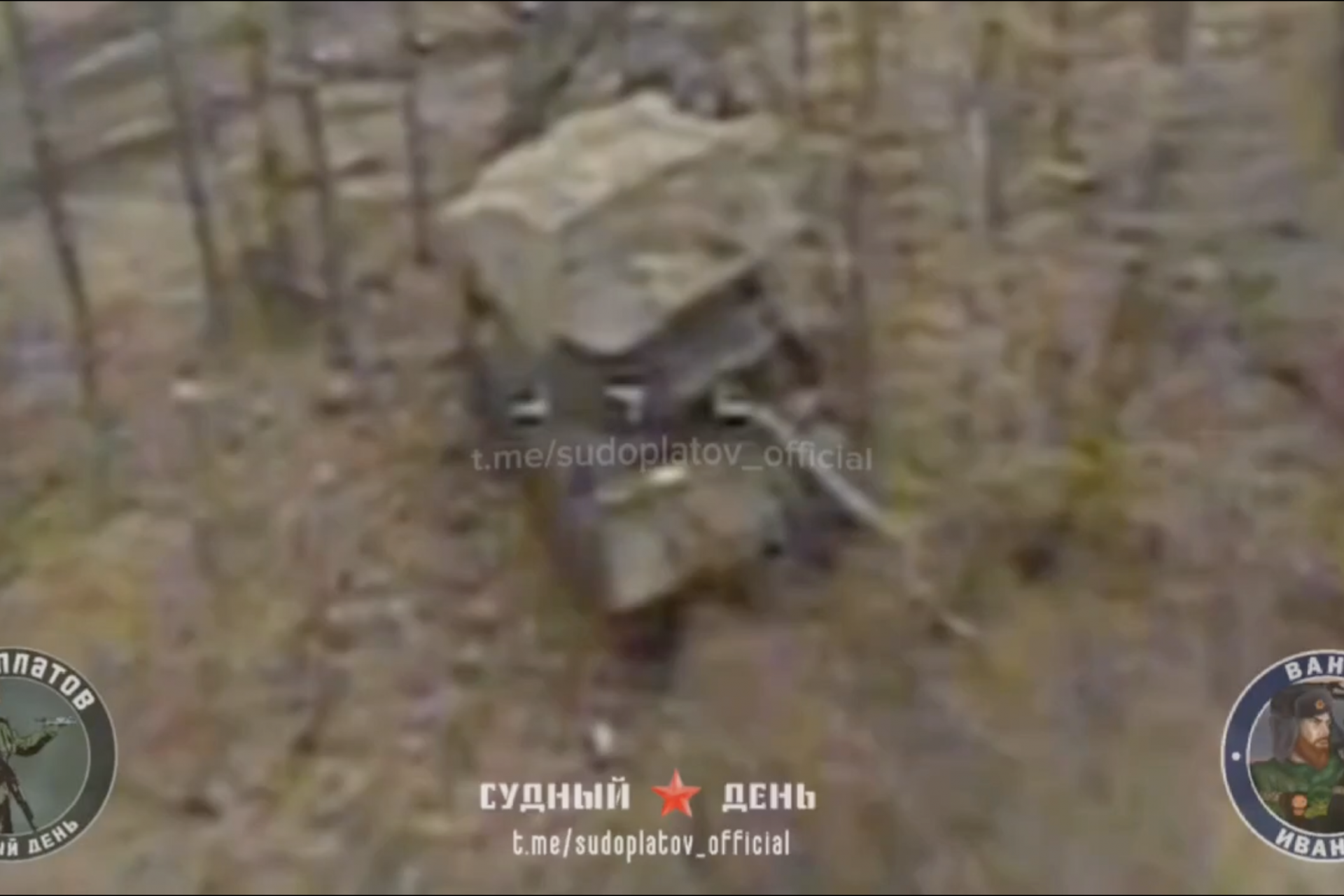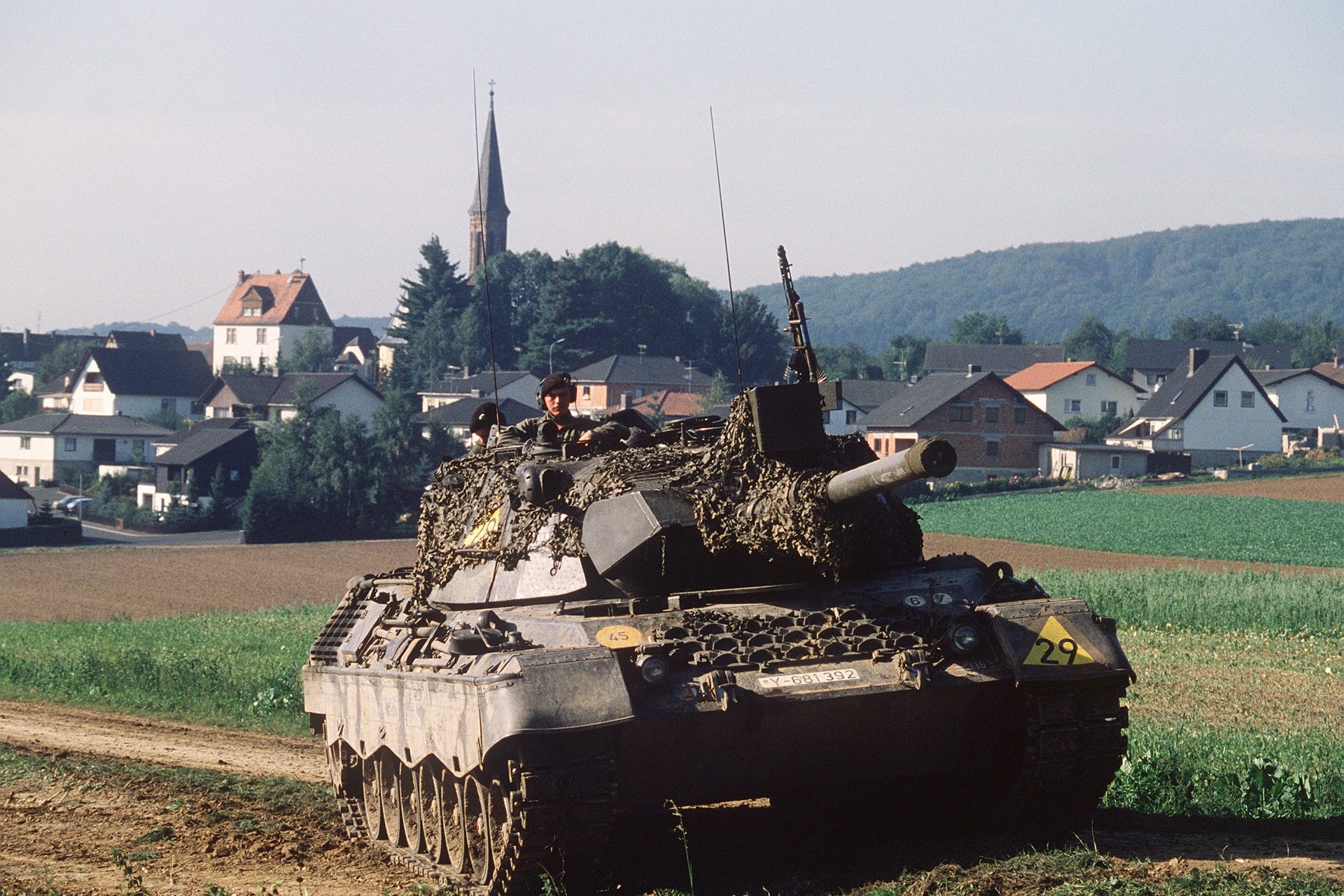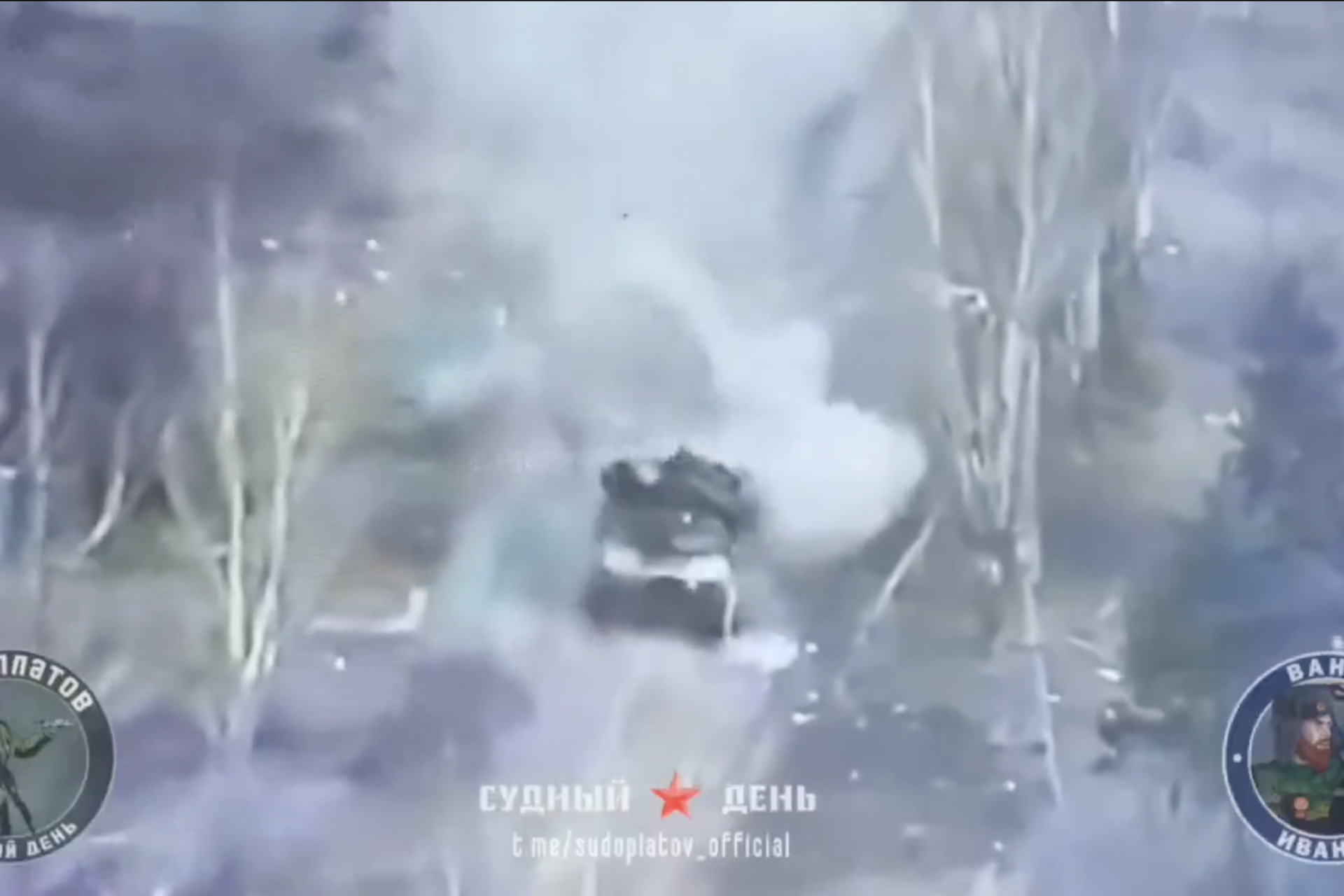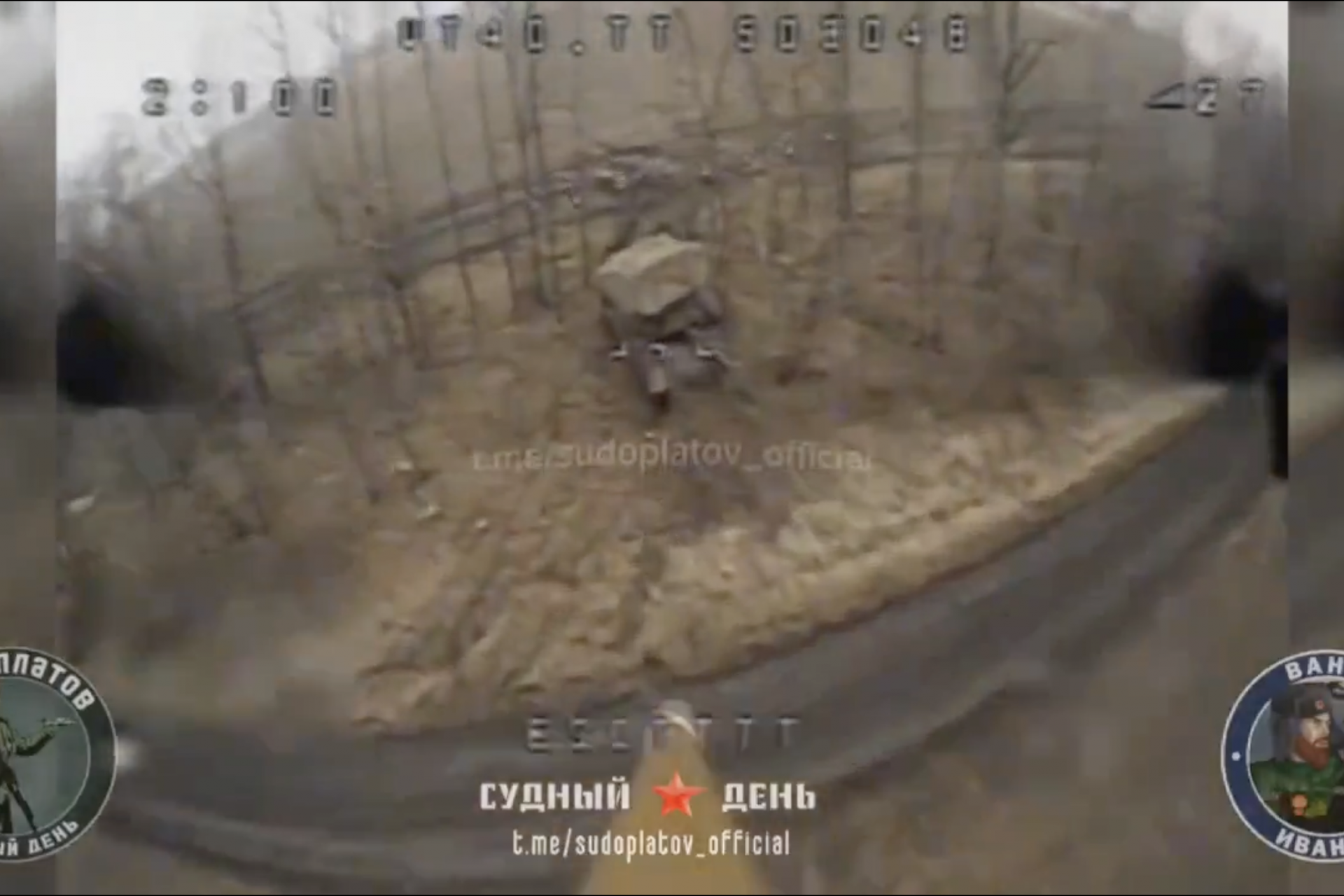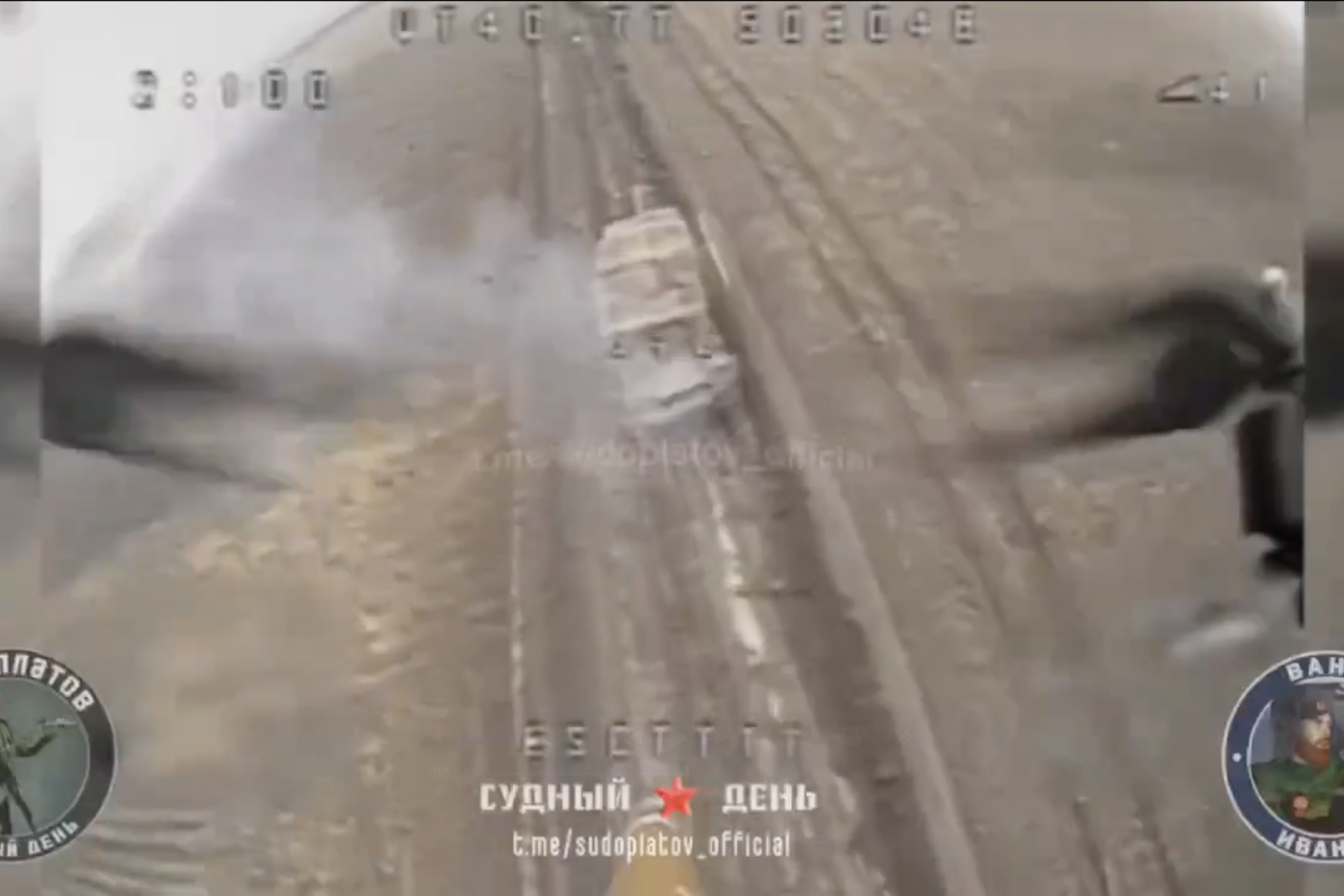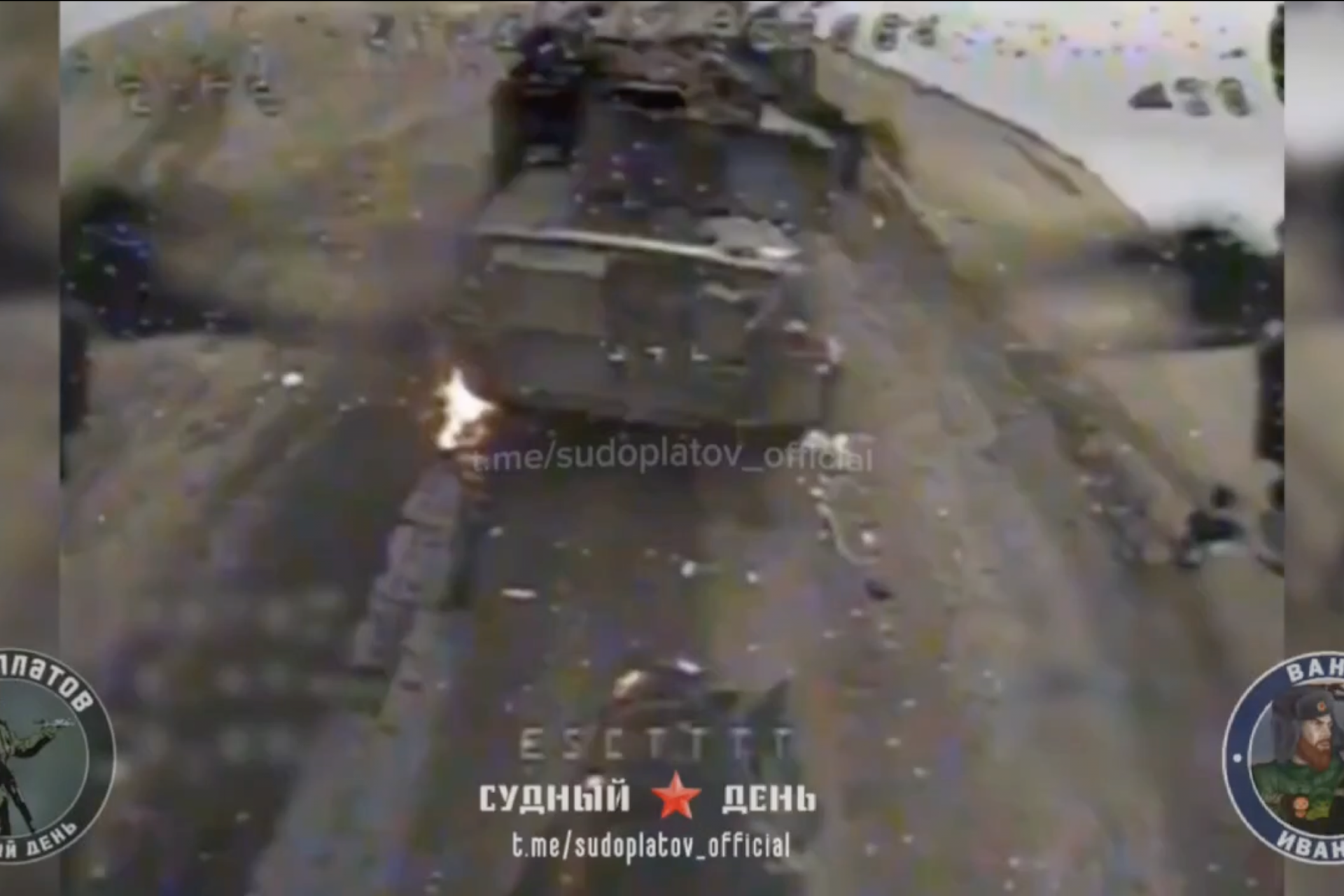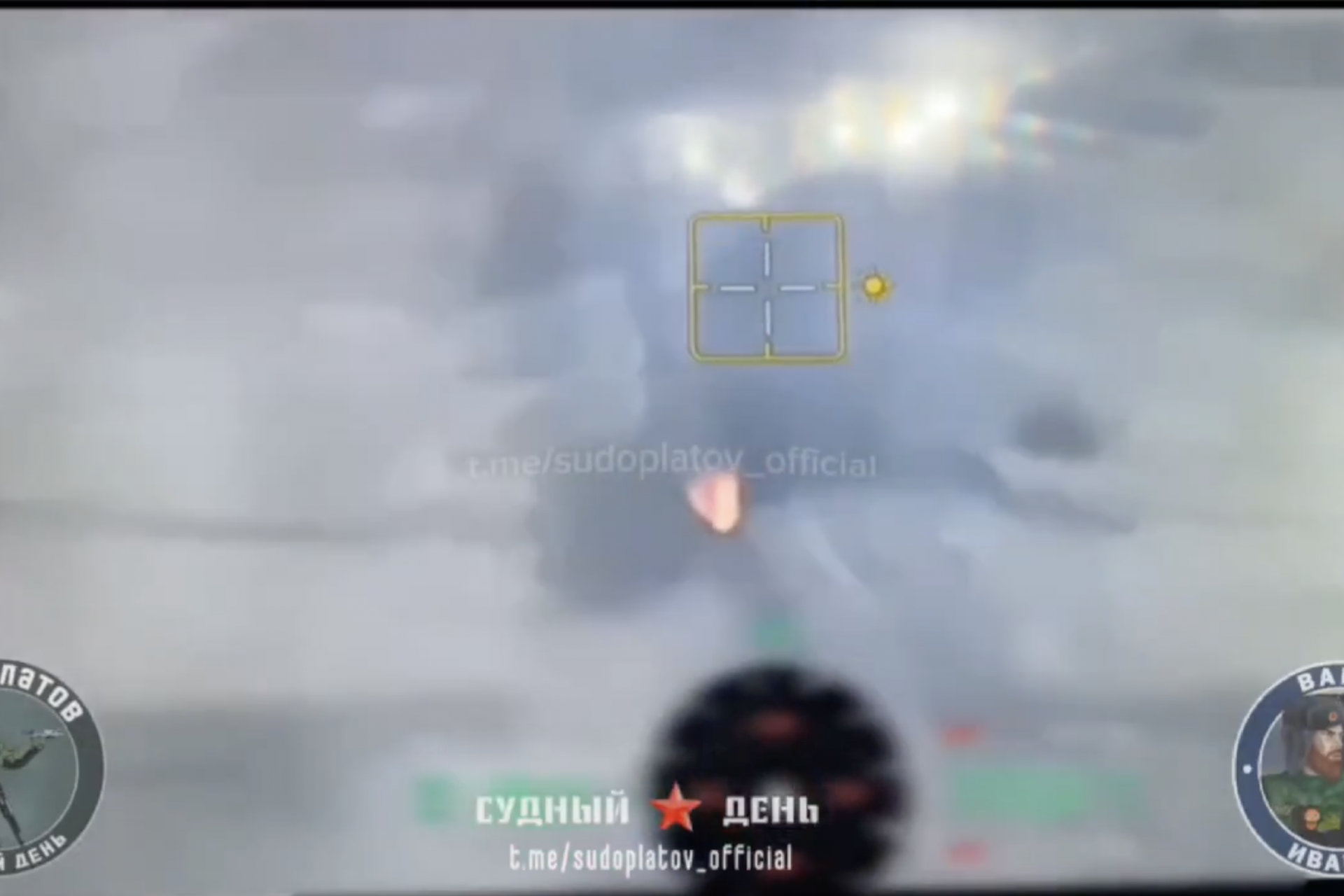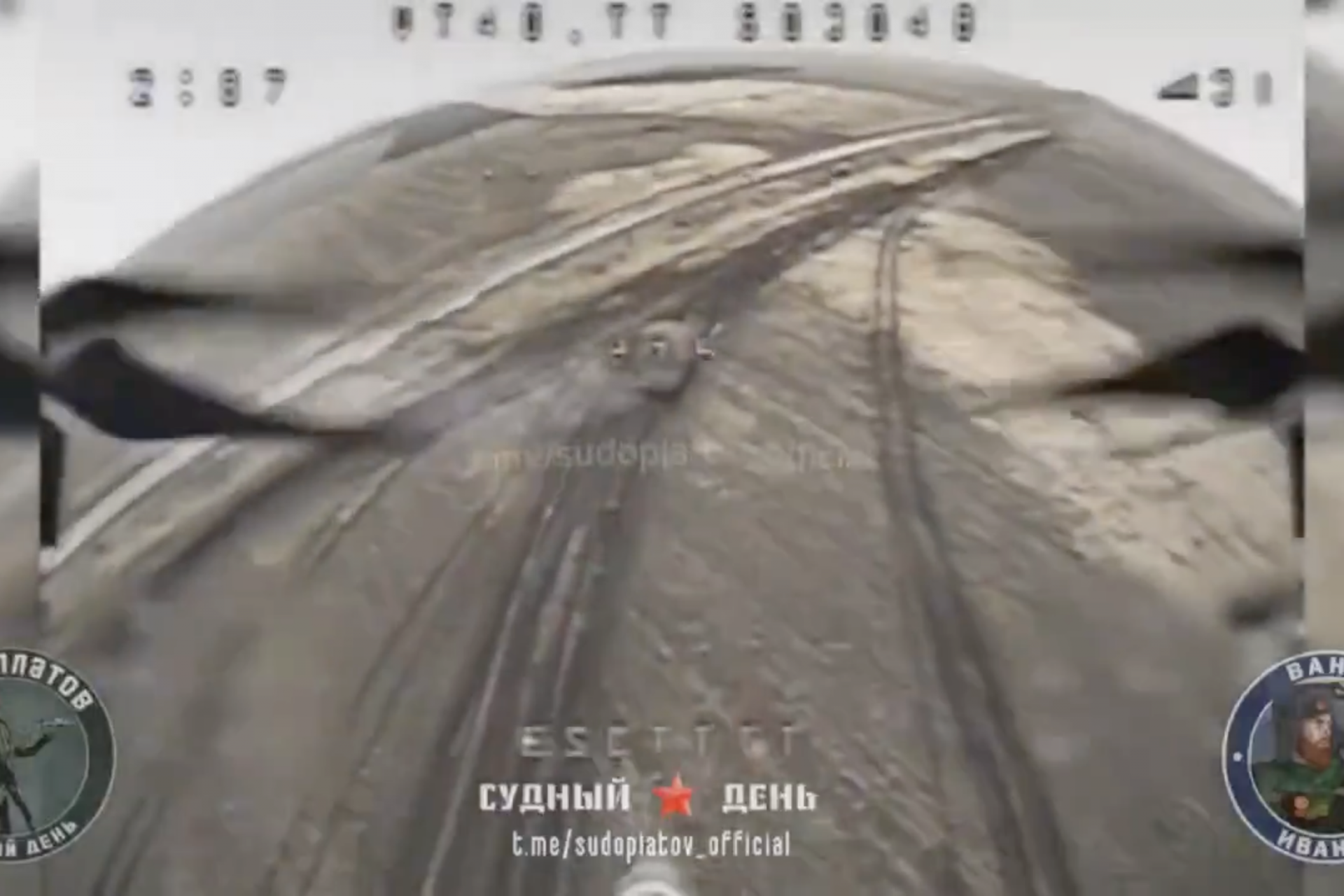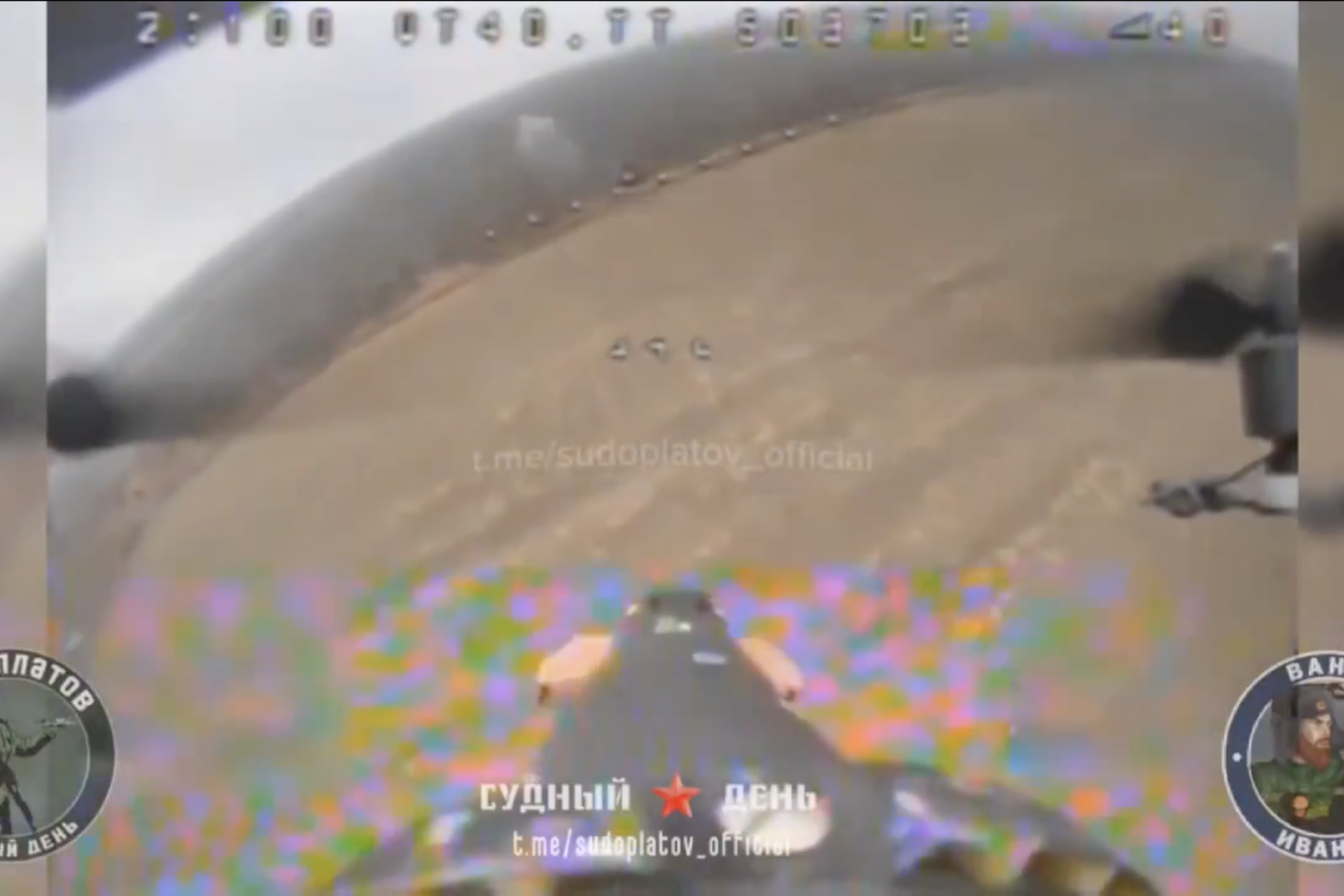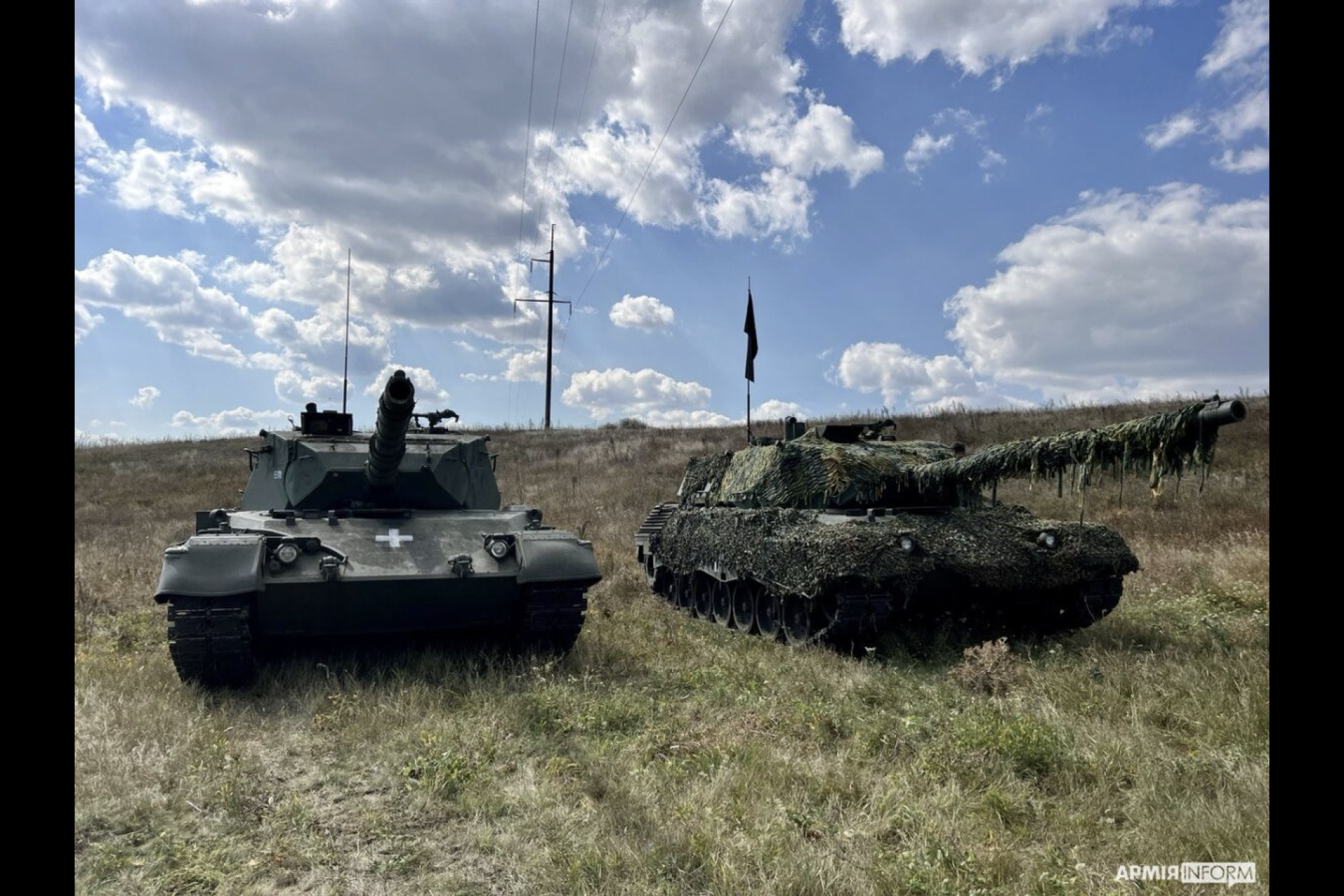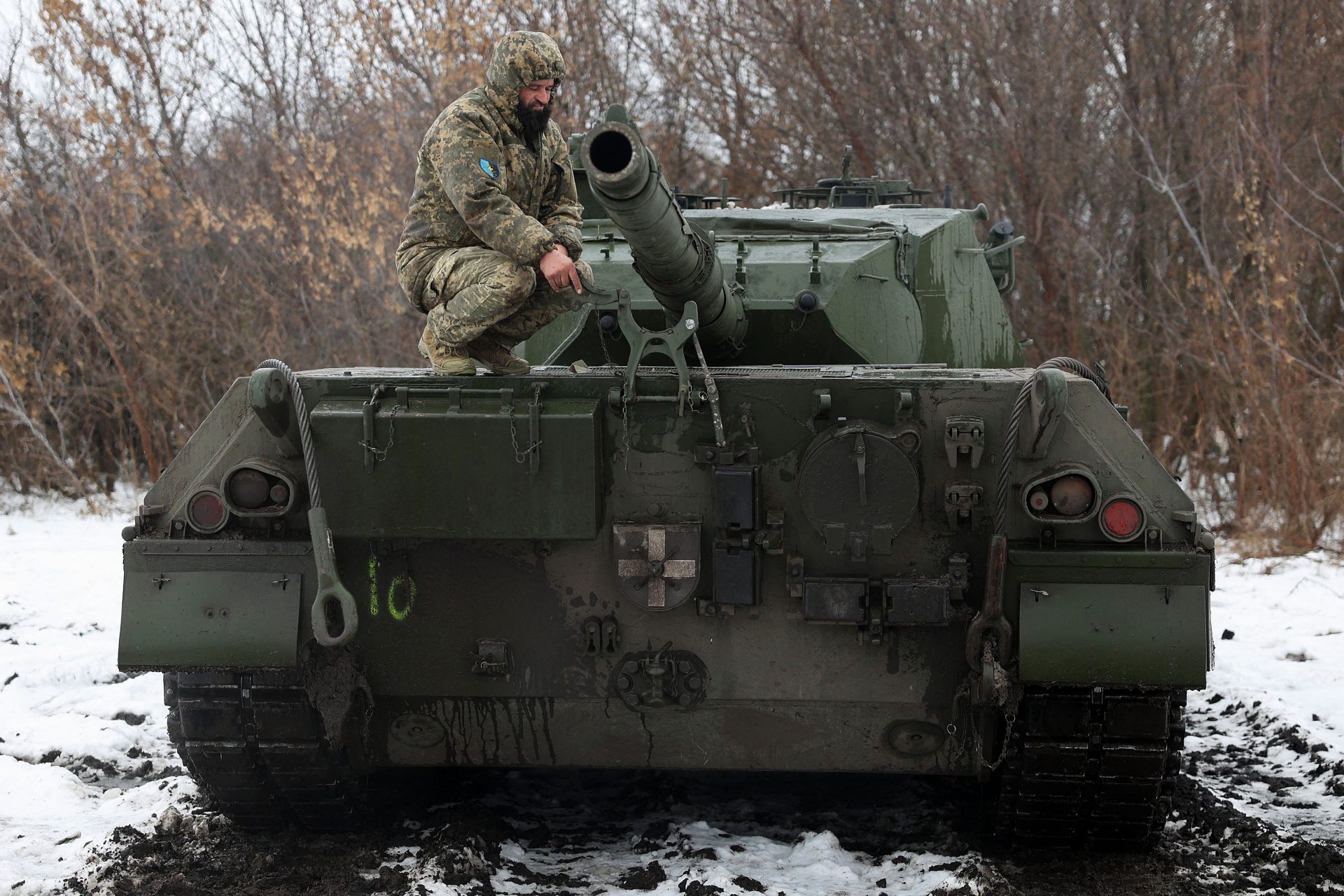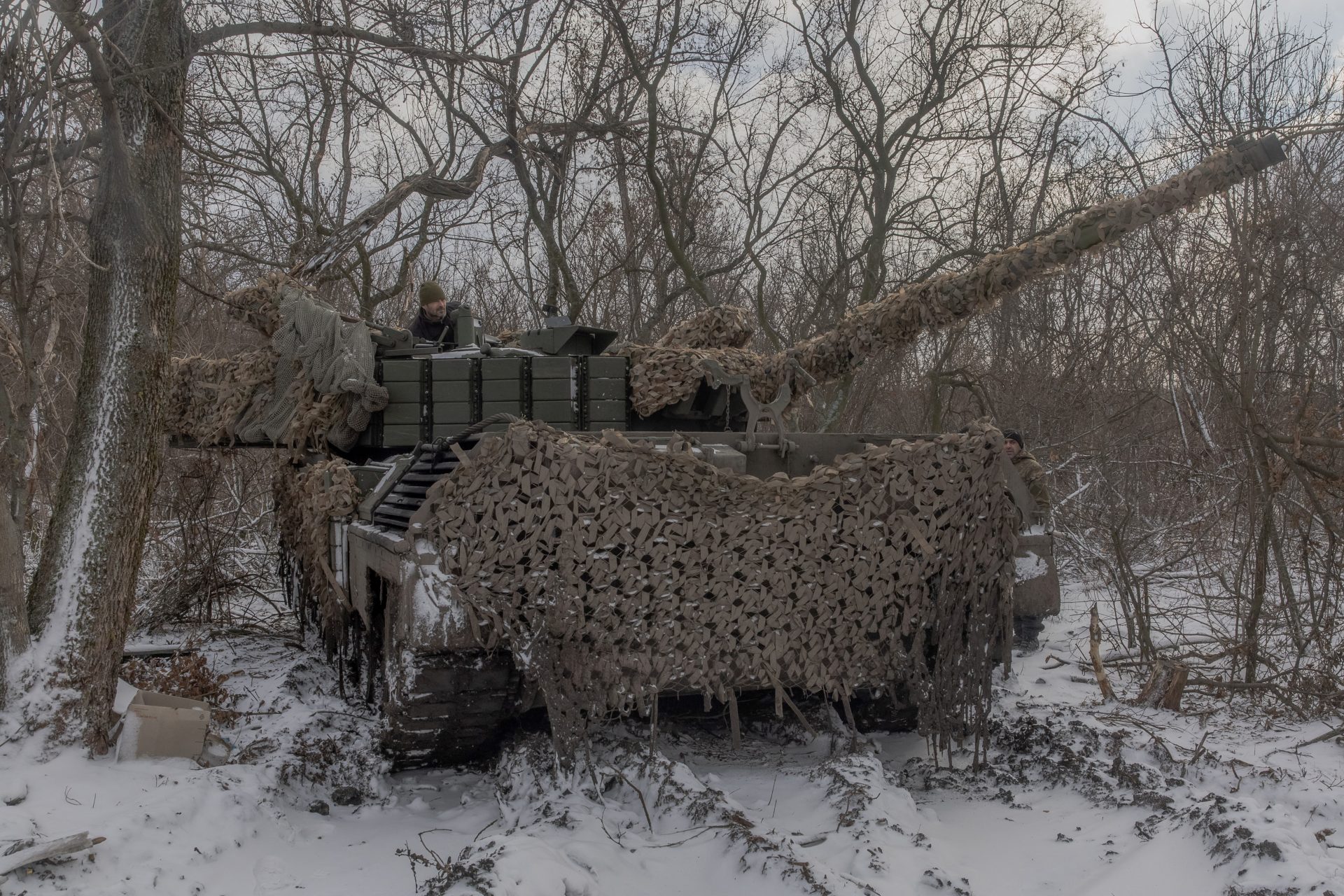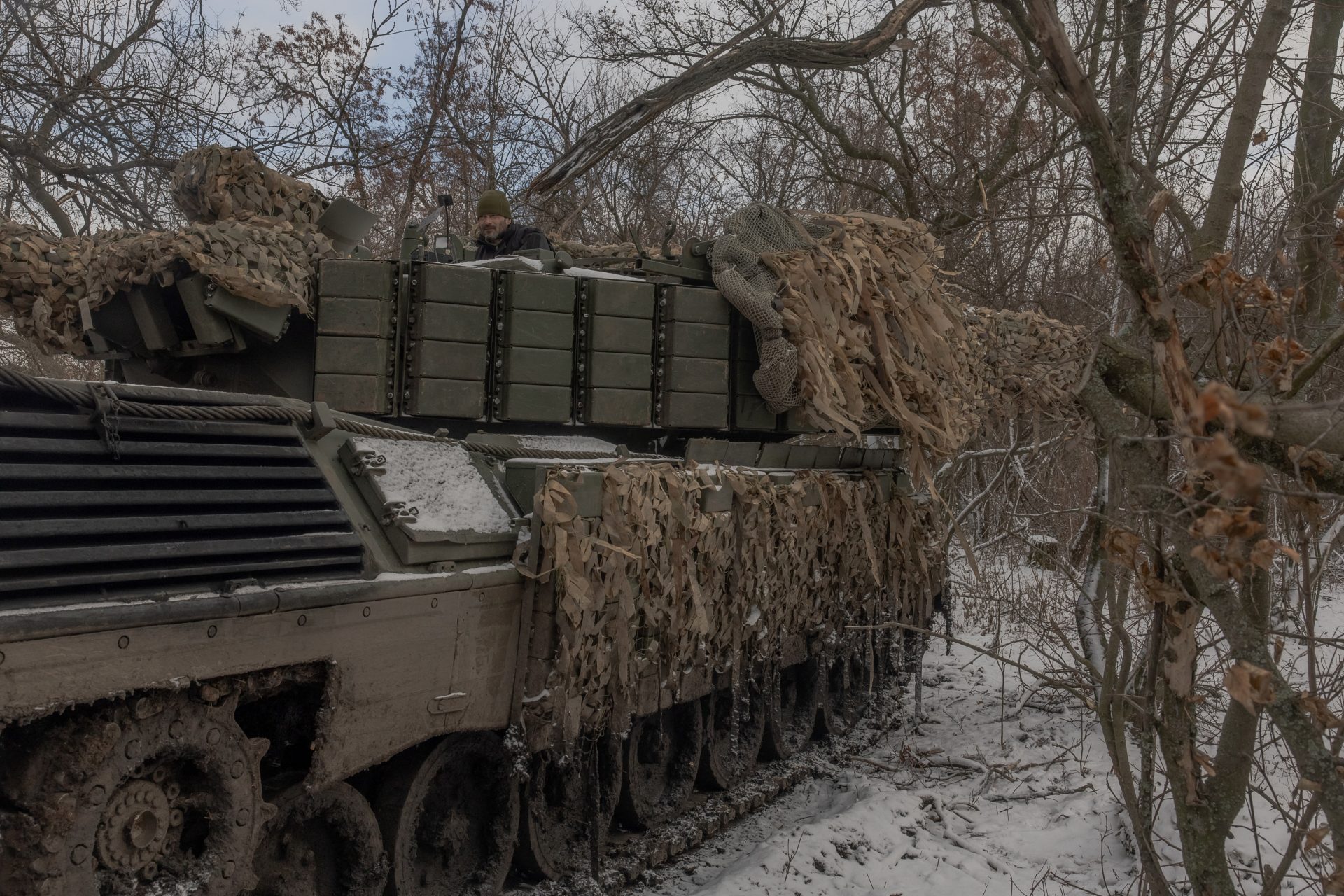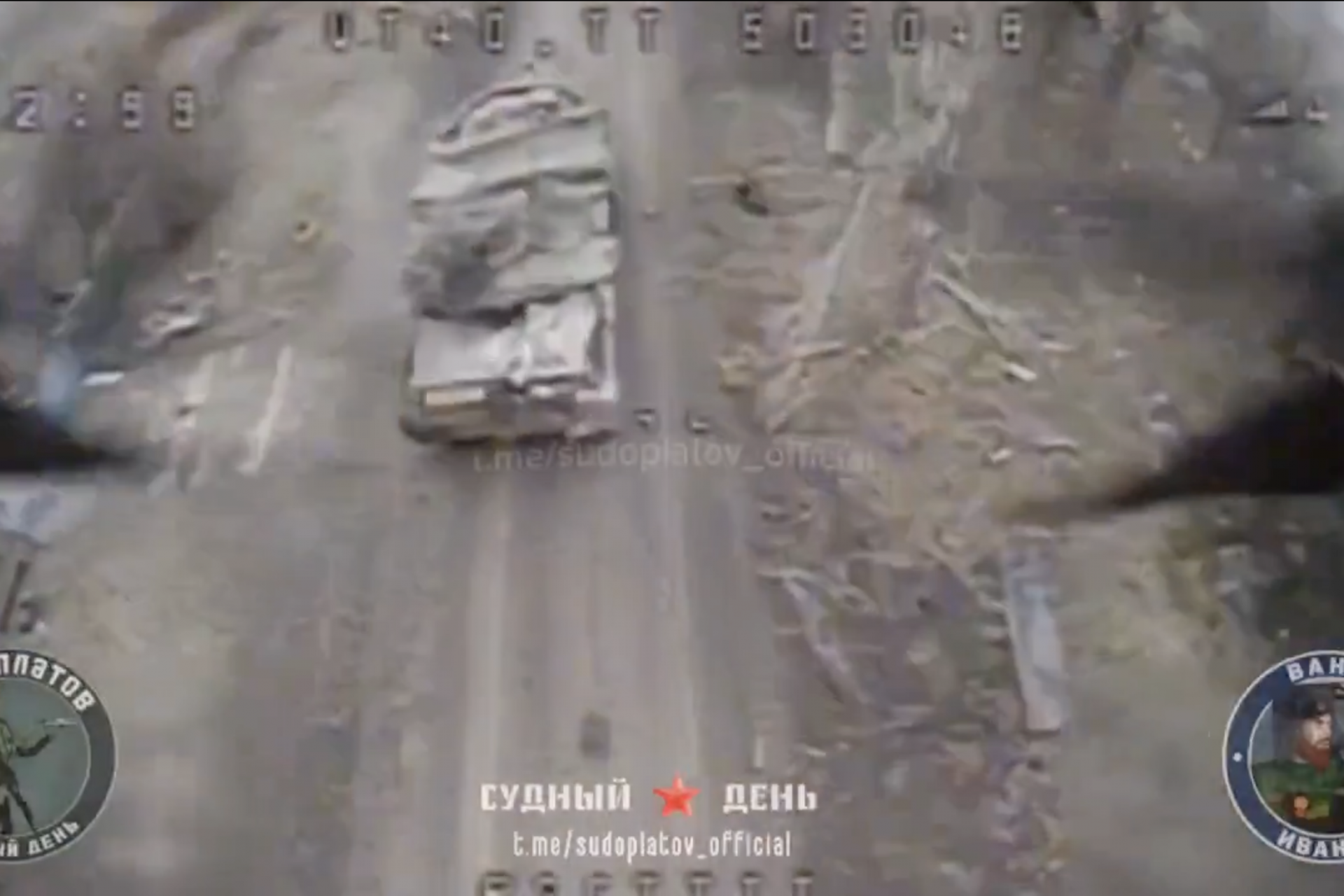One of Ukraine's decades-old tanks withstood nearly a dozen Russian drone attacks
Combat footage from the frontlines in Ukraine has revealed what it's like for soldiers and vehicle crews in the heat of battle. The modern battlefield is dominated by cheap drones that can destroy an expensive weapon with a well-placed strike.
Russia has suffered thousands of tank and armored vehicle losses as a result of attack drone strikes. However, recent footage released by Russian drone operators showed that some Western-supplied Ukrainian equipment can withstand such strikes.
According to an analysis of the footage from the Ukrainian military website Militarnyi, a Leopard 1A5 modernized with additional protection withstood roughly a dozen Russian drone attacks, which was a rather impressive feat for the older German-made tank.
Photo Credit: X @Trotes936897
The Leopard 1A5 is an improved version of the Leopard 1A1A1 Main Battle Tank, which was the first upgraded version of the original Leopard tank that went into service back in 1971 and was developed in the early 1960s according to Army Recognition.
Photo Credit: Wiki Commons By CMSGT Don Sutherland, USAF, Public Domain
Such an older tank shouldn’t have been able to withstand a barrage of Russian drones but the older vehicle was able to take hit after hit without the strikes affecting its ability to move and maneuver on the battlefield. However, the strikes did take their toll.
Photo Credit: X @Trotes936897
Militarnyi reported that the Ukrainian Leopard 1A5 was spotted operating near a forest belt and immediately attacked by Russian attack drones operating in the area.
Photo Credit: X @Trotes936897
The front of the tank was hit three times and its left side was hit twice before its crew was able to move out of the danger zone. However, as the Ukrainian tank was making its escape down a road, it stopped for unknown reasons.
Photo Credit: X @Trotes936897
Russian drone operators resumed their attack on the Ukrainian Leopard 1A5, hitting it three more times on its roof, engine, and transmission. However, Militarnyi reported that the attacks didn’t do any damage to the tank and it continued to move forward.
Photo Credit: X @Trotes936897
Only two of the hits the tank suffered struck the same spot, which Militarnyi noted may have caused a fire and forced the tank to stop. The video ended by showing the tank on fire, though the footage was blurry and its destruction could not be confirmed.
Photo Credit: X @Trotes936897
Militarnyi reported that the Ukrainian tank crew fought for their vehicle until the end but it was unclear if the crew survived the encounter. However, the Ukrainian news outlet said there was “a good chance the crew survived.”
Photo Credit: X @Trotes936897
“The outstanding survivability of the Leopard 1 in this battle is quite unexpected, as the vehicle developed in the 1960s incorporated specific concepts: the designers neglected armor protection, focusing on high mobility and firepower,” Militarnyi reported.
Photo Credit: X @Trotes936897
David Axe of Forbes also reported on the interesting battlefield footage and pointed out that the loss of the Leopard 1A5, a tank that Kyiv waited for for more than a year, wasn’t all bad news since the combat footage showed alterations to the tank’s armor was working.
Photo Credit: Wiki Commons By АрміяInform, CC BY 4.0
“The 40-ton, four-person Leopard 1A5 is a fast and maneuverable tank with accurate fire controls for its reliable 105-millimeter main gun. Its greatest weakness has always been its thin armor protection,” Axe explained.
The Leopard 1A5 only has basic armor that’s 70 millimeters thick at its thickest while the latest version of the tank, the Leopard 2A4, has armor that is four times the thickness of its older version. This was a problem Ukraine tried to solve once the tanks arrived.
Over a year, Ukrainian engineers added explosive reactive armor and hinged screens to cover its Leopard 1A5s in netting that could first-person view attack drones, a strategy that Axe noted seemed to work well for the tank that took 11 drone strikes.
“All the add-on armor seems to have protected the Leopard 1A5 that ate up to 11 Russian drones recently. After repeated hits, the tank still managed to move out—only to get chased down by additional drones,” Axe explained. “Finally immobilized, the tank was probably a total write-off after the ninth, 10th or 11th hit,” Axe continued.
Photo Credit: X @Trotes936897
More for you
Top Stories



